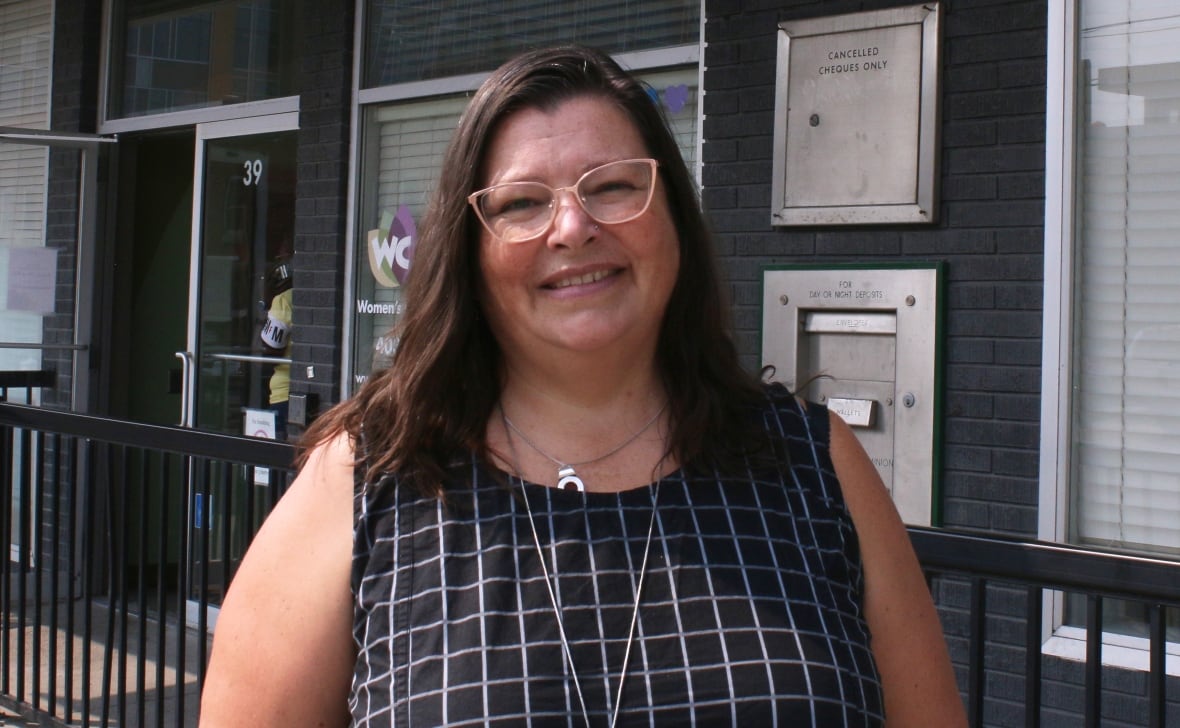Region's plan to clear Kitchener encampment raises concerns for federal housing advocate
Marie-Josée Houle says it's 'impossible to build trust' when there are legal threats
Federal housing advocate Marie-Josée Houle has written an open letter to Region of Waterloo Chair Karen Redman and councillors with her concerns over plans to remove people from a long-standing encampment in Kitchener.
The encampment is located at 100 Victoria Street N., near the Kitchener train station and where Victoria Street intersects with Weber Street. People have been living on the site since early 2022.
In April, regional council passed a bylaw to clear the encampment by Dec. 1 so the empty lot can be used by Metrolinx and construction crews as work to build a new transit hub gets underway. The bylaw would make it illegal for anyone to live on or occupy the site at 100 Victoria St. N., after Dec. 1.
In her letter, Houle explains it's her mandate to review systemic housing issues across the country, as established by the National Housing Strategy Act.
"I appreciate that municipalities like Region of Waterloo are on the frontlines of the homelessness crisis and responses to encampments but do not necessarily have the powers and financial resources to address all the systemic factors contributing to homelessness," Houle wrote in her open letter, which is posted on the Canadian Human Rights Commission's website.
"Nevertheless, municipal governments — just like all other orders of government — have obligations to respect, protect, and fulfill human rights and to adopt a human rights based approach to encampments."
She said in her review of the region's plans, she "heard repeatedly" that giving people a spot at a temporary emergency shelter was not good enough.
"Spaces in emergency shelters do not offer security of tenure and may be inaccessible or unsafe for many people. They do not always consider the cultural needs of Indigenous people, the needs of people with disabilities and can be unsafe for women and members of the 2SLGBTQQIA+ community," Houle wrote.

Building trust 'essential,' advocate says
She urged the region to use a human rights-based approach to their next steps, and that includes "meaningfully engaging" with people who live at the encampment and finding solutions that offer adequate housing and supports for people.
"It is not enough to claim to adopt a human rights-based approach; it is essential to take actions that lead to rights being protected and a real improvement in the lives of people living in encampments," Houle wrote.
"Building and maintaining the trust of people living in encampments is an essential component of a human rights based approach. These relationships must demonstrate transparency, accountability and integrity," Houle added.
"Although the region on the one hand has a team of support workers to assist encampment residents in accessing housing, on the other hand, the region is bringing harmful litigation against the residents of the encampment. It is impossible to build trust in this context."
Houle says she would also welcome the chance to speak with council to offer advice on how her office could help the region move forward.
Region continues to support people at encampment
Homelessness has been a growing issue in Waterloo region. A point-in-time count in the fall of 2021 showed more than 1,000 people didn't have a place to live. That rose to more than 2,300 people during an October 2024 point-in-time count.
The region previously tried to clear people from living on the site in 2022. In January 2023, a Kitchener judge ruled the region couldn't evict people from the site unless they gave them another place to live.
The region tried to argue the encampment went against a bylaw on public conduct on regionally owned properties.
Justice M.J. Valente cited the Charter of Rights and Freedoms, and said the region's plans to move people off the site at the time went against the person's rights to life, liberty and security of the person. That's because, Valente said in his ruling, the region lacked enough shelter space for everyone who was homeless.
In a statement to CBC News on Tuesday, the region said "staff and partners continue to support residents at the encampment."
Those supports include outreach staff, connecting people with Ontario Works caseworkers, regularly cleaning the site, hiring pest control, installing portable washrooms and lights as well as addressing "other health and safety interventions."
The region says that between April 16 and July 2, they helped 13 people who had been living at the encampment prior to April 16 to move off the site "with an approach consistent with the region's plan to end chronic homelessness."
As well, the region says it is seeking direction from the Superior Court of Justice on the bylaw passed in April. That case is scheduled to go before the court in November.